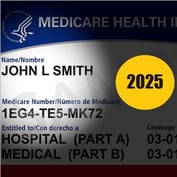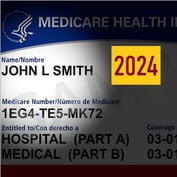Two witnesses painted completely different pictures of the state of the Medicare Advantage program today at a House Energy & Commerce health subcommittee hearing.
Marsha Gold, an analyst at Mathematica Policy Research, said enrollment and plan availability should be strong in 2014.
In 2014, for example, only 5 percent of Medicare Advantage enrollees will have to switch plans because their plans are going away, Gold said.
“Most who do will be able to enroll in the same type of plan, often offered by the same company,” Gold said.
Average plan premiums were stable in 2014, and they dropped an average of 21 percent from 2010 through 2013, Gold said.
The gap between spending on traditional Medicare enrollees and Medicare Advantage enrollees has narrowed, but Medicare is still spending an average of 4 percent more on Medicare Advantage enrollees this year than on traditional plan enrollees, Gold said.








 December 04, 2013 at 11:58 AM
December 04, 2013 at 11:58 AM










